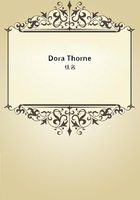it comes forward again and again in the shape of a rule, that there can be no court unless there are some free tenants to form it. The number required varies. In Henry VIII's reign royal judges were contented with two. In John's time as many as twelve were demanded, if a free outsider was to be judged. The normal number seems to have been four, and when the record of the proceedings was sent up to the King's tribunal four suitors had to carry it. The difference between the statement of Coke and the earlier doctrine lies in the substitution of the manor for the court. Coke and his authorities, the judges of Henry VIII's reign, speak of the manor where the older jurisprudence spoke of the court. Their rule involves the more ancient one and something in addition, namely, the inference that if there be no court baron there is no manor. Now this part of the doctrine, though interesting by itself, must stand over for the present. Let us simply take the assertion that free suitors are necessary to constitute a court, and apply it to a state of things when there was but one strictly manorial court, the halimot. In 1294 it is noted in the report of a trial that, 'in order that one may have a court he must have at least four free tenants, without borrowing the fourth tenant.'(79*) Now a number of easy explanations seem at hand: four free tenants at least were necessary, because four such tenants were required to take the record up to the king's court and to answer for any false judgment; a free tenant could protest against being impleaded before unfree people; some of the franchises could not be exercised unless there were free suitors to form a tribunal. But all these explanations do not go deep enough: they would do very well for the later court baron, but not for the halimot. It is not asserted that free suitors are necessary only in those cases where free tenants are concerned -- it is the court as such which depends on the existence of such free suitors, the court which has largely, if not mostly, to deal with customary business, and consists to a great extent of customary tenants. And, curiously enough, when the court baron disengages itself from the halimot, the rule as to suitors, instead of applying in a special way to this court baron, for which it seems particularly fitted, extends to the notion of the manor itself, so that we are driven to ask why the manor is assumed to contain a certain number of free tenants and a court for them. Why is its existence denied where these elements are wanting? Reverting to the thirteenth century, we have to state similar puzzling questions: thus if one turns to the manorial surveys of the time, the freehold element seems to be relatively insignificant and more or less severed from the community; if one takes up the manorial rolls, the halimot is there with the emphatically expressed features and even the name of a court of villains; but when the common law is concerned, this same tribunal appears as a court of freeholders. The manors of the Abbey of Bec on English soil contained hardly any freeholders at all. Had the Abbey no courts? Had it no manors from the standpoint of Coke's theory? What were the halimots whose proceedings are recorded in the usual way on its manorial rolls? In presence of these flagrant contradictions I cannot help thinking that we here come across one of those interesting points where the two lines of feudal doctrine do not meet, and where different layers of theory may be distinguished.
Without denying in the least the practical importance of such notions as that which required that one's judges should be one's peers, or of such institutions as the bringing up of the manorial record to the King's Court, I submit that they must have exercised their influence chiefly by calling forth occasions when the main principle had to be asserted. Of course they could not create this principle: the idea that the halimot was a communal court constituted by free suitors meeting under the presidency of the steward, must have existed to support them. That idea is fully embodied in the constitution of the ancient demesne tribunal, where the suitors were admitted to be the judges, although they were villains, privileged villains and nothing else. Might we not start from the original similarity between ancient demesne and ordinary manors, and thus explain how the rule as to the necessary constitution of the manorial court was formed? It seems to me a mere application of the higher rule that a court over free people must contain free people, to a state of things where the distinction between free and unfree was not drawn at the same level as in the feudal epoch, but was drawn at a lower point. We have seen that a villain was in many respects a free man; that he was accepted as such in criminal and police business; that he was free against everybody but his lord in civil dealings; that the frank-pledge system to which he belonged was actually taken to imply personal freedom, although the freeholders ultimately escaped from it. I cannot help thinking that a like transformation of meaning as in the case of frank-pledge did take place in regard to the free suitors of the manorial court. The original requirement cannot have concerned freeholders in the usual legal sense, but free and lawful men, 'worthy of were and wite' -- a description which would cover the great bulk of the villains and exclude slaves and their progeny.














